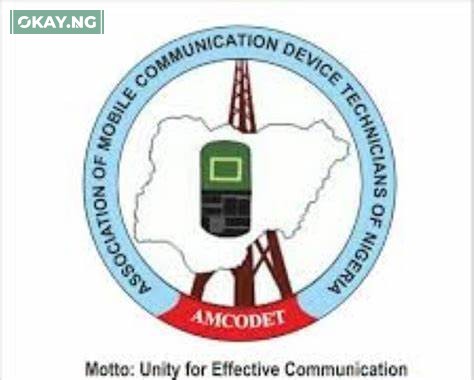In a move aimed at drastically reducing phone theft and safeguarding the integrity of Nigeria’s mobile device industry, the Association of Mobile Communication Device Technicians of Nigeria (AMCODET) is calling on the Nigeria Communications Commission (NCC) to mandate the registration of all mobile phones at the point of purchase. This appeal, made by AMCODET President Kehinde Apara, underscores the urgent need for stricter measures to combat the pervasive issue of stolen mobile devices.
“Registration of mobile phones will reduce theft to the barest minimum,” Apara stated in an interview with the News Agency of Nigeria (NAN), highlighting the simple yet powerful deterrent effect such a policy would have on criminals. “It will be difficult for thieves to sell registered stolen phones.”
Beyond curbing theft, the proposed registration system aims to alleviate the unwarranted harassment faced by mobile phone technicians. Often, these professionals find themselves wrongly implicated in theft cases simply because customers bring stolen devices for repair. “We are calling for registration of new mobile phones because we believe it will also reduce harassment of our members by security agencies,” Apara explained. “So many of our members have been labelled accomplices in theft cases, because customers bring stolen phones to them to repair. We believe this is unfair to such innocent people.”
AMCODET’s advocacy extends beyond this immediate call. The association played a pivotal role in the implementation of the NIN-SIM linkage, a policy introduced to address national security concerns and mobile theft. While acknowledging the policy’s positive impact, Apara emphasizes that it is not a comprehensive solution. “The NIN-SIM linkage is the brainchild of AMCODET,” he revealed, “noting that the idea was sold to the Nigerian Communications Commission to curb insecurity and theft, but that it is not enough.”
Looking forward, Apara envisions a thriving Nigerian mobile phone industry, one that can stand independently and innovate. He calls for greater support from individuals and the private sector to foster local technological development. “We need individuals’ support to develop our industry, rather than relying on the government for everything,” he asserted. “The country has the capacity to develop its own technology, but needs the support of individuals and organisations to make it happen.”
This sentiment reflects a broader desire within the Nigerian tech community to move beyond reliance on imported technology and cultivate indigenous solutions. Despite current challenges, Apara remains optimistic. “Nigeria has the potential to develop its own technology with the necessary backing,” he concluded.
The call for mandatory phone registration represents a critical step towards enhancing security and fostering a more robust mobile phone industry in Nigeria. As the NCC considers AMCODET’s proposal, the impact on both consumers and technicians remains a central point of discussion.













